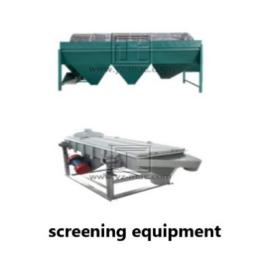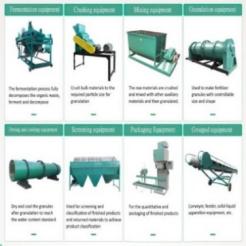Chicken manure fertilizer pellet making machine
A chicken manure fertilizer pellet making machine, also known as a chicken manure pelletizer, is specialized equipment designed to convert chicken manure into pelletized organic fertilizer. This machine takes the processed chicken manure and transforms it into compact pellets that are easy to handle, transport, and apply to crops. Let’s explore the key features and benefits of a chicken manure fertilizer pellet making machine:
Pelletizing Process:
A chicken manure fertilizer pellet making machine compresses and shapes the processed chicken manure into uniform pellets. This process involves the use of pressure, heat, and binding agents to transform the manure into dense and durable pellets.
Nutrient Retention:
The pelletizing process of a chicken manure fertilizer pellet making machine helps retain the nutrients present in the chicken manure. By compacting the manure into pellets, the nutrients are concentrated within each pellet, ensuring a consistent and balanced nutrient content. This promotes efficient nutrient delivery to plants during fertilizer application.
Enhanced Fertilizer Properties:
Chicken manure fertilizer pellets produced by the machine often have enhanced properties compared to raw or composted manure. The pelletizing process can help reduce odor, improve nutrient release rates, and provide a slow-release effect. These characteristics make the fertilizer pellets more convenient to handle and allow for better nutrient management in agricultural and horticultural applications.
Customizable Pellet Size and Shape:
Chicken manure fertilizer pellet making machines offer flexibility in producing pellets of different sizes and shapes. Operators can adjust the machine settings to customize the pellet size according to specific crop requirements or application methods. This customization allows for targeted nutrient delivery and optimized fertilizer utilization.
Easy Application and Handling:
The pelletized form of chicken manure fertilizer is easy to handle, store, and transport. The pellets are uniform in size and shape, which makes them convenient to spread using fertilizer spreaders or other application equipment. The compact and durable nature of the pellets also reduces the risk of nutrient loss during transportation or storage.
Increased Efficiency and Nutrient Utilization:
Chicken manure fertilizer pellets provide improved efficiency and nutrient utilization compared to raw manure. The pelletized form ensures a slow-release of nutrients, promoting a sustained and balanced nutrient supply to plants over an extended period. This enhances nutrient uptake, reduces nutrient leaching, and minimizes the risk of nutrient runoff into water sources.
Environmental Benefits:
Using a chicken manure fertilizer pellet making machine supports environmentally friendly waste management practices. By converting chicken manure into pelletized organic fertilizer, the machine helps reduce reliance on chemical fertilizers and minimizes the environmental impact of raw manure application. Pelletized organic fertilizer promotes soil health, improves nutrient cycling, and reduces nutrient losses to the environment.
Cost Savings:
Chicken manure fertilizer pellets produced with a pellet making machine can result in cost savings for farmers. The pelletized form allows for efficient nutrient application, reducing fertilizer waste and ensuring targeted nutrient delivery to plants. This optimized nutrient utilization can lead to improved crop productivity and cost savings in fertilizer expenses.
In conclusion, a chicken manure fertilizer pellet making machine offers efficient pelletization of processed chicken manure, nutrient retention, enhanced fertilizer properties, customizable pellet size and shape, easy application and handling, increased efficiency and nutrient utilization, environmental benefits, and potential cost savings. By utilizing a chicken manure fertilizer pellet making machine, operators can convert chicken manure into convenient and nutrient-rich organic fertilizer pellets, contributing to sustainable agriculture practices and maximizing the benefits of chicken manure as a valuable resource.







